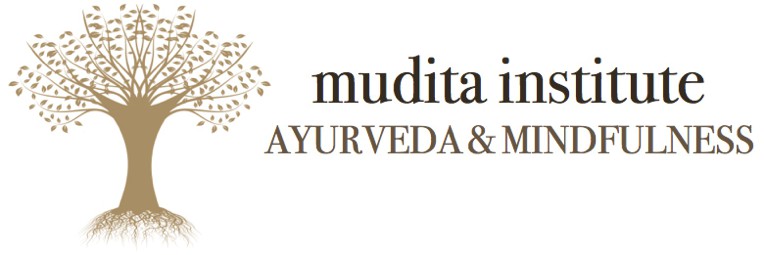By Kester Marshall
Chronic Fatigue Syndrome (otherwise known as CFS, ME or Post-viral Fatigue Syndrome) and Fibromyalgia are conditions that I’ve come across a lot working in clinical practice. In my experience, they can be extraordinarily debilitating - both physically and psychologically.
In many instances CFS and Fibromyalgia present in a similar fashion and I often see people who have been diagnosed with both conditions, commonly with other auto-immune disorders present as well. This is why I’m writing about them together, as ‘sister’ pathologies if you like.
In this article I’ll explore the Western understanding and treatment of these conditions followed by the Ayurvedic viewpoint. In contrast to the Western medical model, Ayurveda offers an in-depth understanding of the development of these pathologies and a clear path to recovery....
The Western Perspective
Diagnosis of CFS is reached first by excluding many other diseases with chronic fatigue as a major or frequent symptom. Secondly, four or more of the following symptoms must be present, having either occurred at the same time or after the severe chronic fatigue:
• substantial impairment of short-term memory or concentration
• sore throat
• tender lymph nodes
• muscle pain
• multi-joint pain without swelling or redness
• headaches of a new type pattern or severity
• non-refreshing sleep
• post-exertion malaise lasting more than 24 hours
Fibromyalgia is diagnosed again, by excluding any condition that may mimic it, plus identifying point tenderness areas with no accompanying tissue swelling or inflammation (typically this relates to 11 of 18 classic fibromyalgia tender points).
Other symptoms of fibromyalgia can include: lasting fatigue or lethargy that is exacerbated by exertion, pain in the joints, muscles and other soft tissues, digestive problems, breathlessness, palpitations, headaches, 'foggy' brain, short-term memory loss, sensory hypersensitivity, anxiety and depression.
The Disease Process
At present, from a western medical perspective, there is no known cause for either CFS or Fibromyalgia. Possible causes or triggers are suggested, but it is unclear from this model of understanding what the disease process actually is.
Oxidative stress, genetic predisposition, viral infections, hormone and neurotransmitter imbalances, elevated cytokines (neuro-immune mediators), immune dysfunction as well as psychological and psychosocial factors are all suggested as contributing factors, but as yet the exact pathogenesis is unknown.
Treatment
There is also no proven treatment available from a Western medical perspective and the approach is primarily aimed at symptom management. This includes a possible combination of analgesics, antidepressants, anti-rheumatic agents, immune modulating drugs, long term antibiotic therapy and tranquilizers along with rest, gentle exercise programs and sometimes massage.
The Ayurvedic Perspective
In contrast, CFS and Fibromyalgia are both recognised conditions in Ayurveda that have known causes and pathogenesis. Also, depending on their severity and chronicity, they are both considered treatable. IN Ayurveda, CFS is known as Shosh Rog, ‘A disease of Depletion’ and Fibromyalgia is found in the classic texts as a class of diseases known as ‘Shool’ and is also described under the ‘Vata Vyadi’.
I am always amazed that a 5000 year old medical system recognises and intricately describes these seemingly very modern conditions of fatigue and immune depletion when our Western medical system does not, as yet.
The Disease Process
When it comes to the cause of these conditions, there are several important factors to mention. The first, as with all pathologies, is compromised digestion. When our Agni (digestion) is not working well and has become imbalanced, Ama (undigested food waste/toxin) is formed. Once it is present, Ama causes further digestive problems such as bloating, pain, gas, constipation or diarrhoea and also moves from the gut into the channels of circulation causing obstructions. This impedes the flow of nutrients, wastes and hormones around the body and hampers the metabolism of healthy tissues.
The second factor is the aggravation of Vata and Pitta doshas. This occurs due to various causative factors. Along with the Ama that is produced, Vata and Pitta dosha also become imbalanced and begin to exert their influence on the tissues of the body, contributing to pain, stiffness, fatigue and many of the other symptoms that are associated with CFS and Fibromyalgia.
Over time the metabolism of all the tissues is compromised and the final stage in the pathology becomes involved. Ojas (which is considered the final essence of tissue metabolism and the primary support for our immune system) is gradually depleted, causing the lingering viral or fungal infections that are often associated with CFS.
This occurs in the same way that mud or debris clogs up and obstructs a channel irrigation system in a field. If the channels are blocked and the water can’t get through then eventually the fields (where Ojas is ‘grown’) will dry up.
The things that are most depleting to Ojas however, are those of a psychological nature, such as fear, anxiety, anger, grief and trauma. They are all have opposite qualities to the qualities of Ojas and very quickly cause it to loose its nectar-like, life supporting properties. This depletion is exacerbated by many factors including eating too much dry and cold food (including processed food or too much raw food), lack of restful sleep, excessive talking and sensory stimulation, too much mass media, overly strenuous exercise, overwork, travel, excessive fasting or sudden weight loss.
Treatment
The aim of treatment in Ayurveda is to address the disease process at the deepest level - by strengthening and balancing Agni, removing Ama, pacifying and eliminating excess doshas and nourishing Ojas.
Diet, lifestyle, herbal medicines, Ayurvedic detoxification and body treatments all have an important role to play and given the chronic nature of these conditions, should all be utilized for best results.
The most important thing however, is the way that these aspects of treatment are carried out. In order to have a deep and lasting effect, Ayurvedic treatment takes time, especially with chronic conditions. All aspects of treatment should therefore be done with warmth, patience, consistency and regularity.
Diet and lifestyle are the foundation. Following a warm and nourishing diet that supports the digestive fire, healthy tissue development and balances the doshas is essential. Without this all other aspects of treatment are limited in the benefits they will have.
Appropriate lifestyle practices (including the right sort of exercise) should be adopted in order to help calm the mind and support the nervous system, whilst at the same time promoting good digestion and circulation.
Ayurvedic herbal preparations are especially good for helping with pain, weakness and compromised immunity by removing Ama, pacifying Vata and building Ojas. Herbal medicines should always be prescribed by an experienced Ayurvedic Practitioner for best effect.
Specific body treatments such as pindaswed, ayurvedic massage and medicated steam treatments are excellent for improving metabolism and relieving pain, swelling and inflammation. Shirodhara and heart dhara are excellent for calming the mind and emotions, balancing hormones and relieving symptoms such as anxiety, insomnia, headaches and palpitations.
In my experience however, the most difficult complications of CFS and Fibromyalgia are those that affect the mind. Feelings of anxiety, depression and loneliness are incredibly common due to the isolating nature of the conditions and as they become more prevalent they feed straight back into the disease process by having a direct depleting effect on Ojas.
Although all of the Ayurvedic treatments help a great deal on this front, this is where the practices of mindfulness and meditation are extremely beneficial. More and more, scientific studies are showing the tremendous benefit of mindfulness practices for anxiety, depression and strengthening the immune system. The intimate link between the physical and psychological elements of these conditions means that these practices should be an integral part of treatment.
With any chronic illness the road to recovery can be long and difficult, requiring a lot of patience and persistence. But, with the right help and support - the kind that provides an awareness and understanding of what is required and most importantly, how to do it.....it is possible!
If you are in any doubt about your health please be sure to consult an Ayurvedic Practitioner or your local health physician. See our Clinic page for more information.

